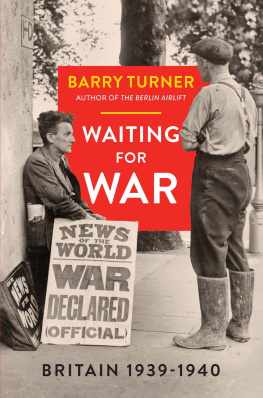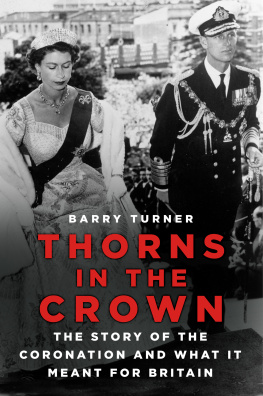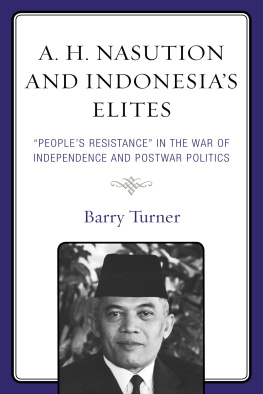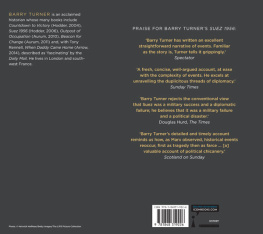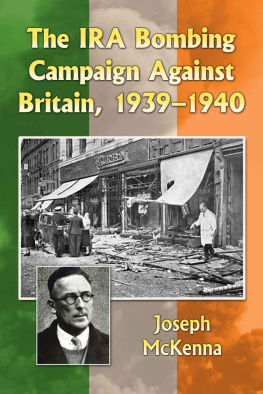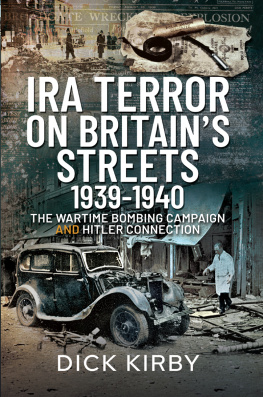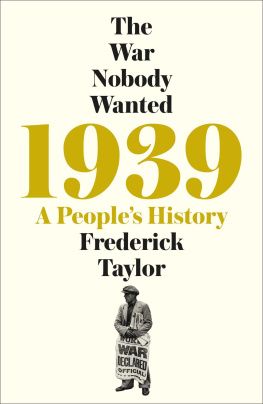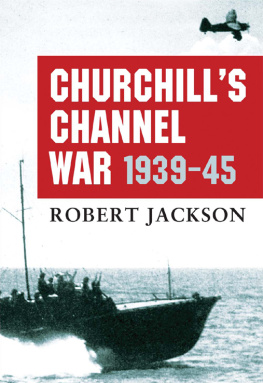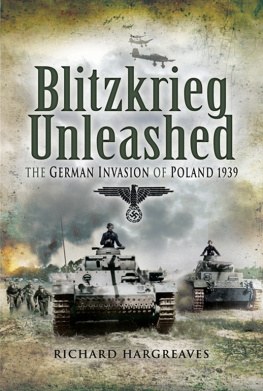In this fine piece of popular history, Barry Turner provides an engaging and vivid account of this first major episode of the Cold War. BBC History
A crisply written, suitably dramatic and ultimately heartening book. Daily Mail
This new history of Operation Vittles based on hitherto unexplored archives and interviews with veterans paints a fresh, vivid picture of the Berlin airlift, whose repercussions the role of the USA as a global leader, German ascendancy, Russian threat are still being felt today. The Bookseller
T he stand-off between Britain and Germany from September 1939 to May 1940 has entered the history books as the Phoney War. But this is not to say that it was without drama. The story of this critical period in the nations history is of political infighting, missed opportunities and of military and civil incompetence on a monumental scale. Defeatism was deeply ingrained in a people dreading, above all, a return to the carnage of the Great War.
Revisionist interpretations of events have attempted to excuse Neville Chamberlain and his foreign secretary Lord Halifax for doing no more than bowing to the dictate of public opinion. The voters wanted peace and the government tried its best to give it to them. But this is to ignore the prime function of a political leader which is to lead.
Portrayed as a victim of circumstances or as a misguided idealist, Chamberlain can be forgiven many things but not for his failure to recognise Hitlers ruthless villainy. While Chamberlain fondly imagined that he was shaping events, in fact he allowed the events, with Hitler as their driving force, to shape him.
The hindsight justification for the Phoney War, that it gave Britain time to build up its strength for the struggle ahead, is hard if not impossible to sustain. Britain was in better military shape by May 1940 but so too was Germany. The big difference was that while Britain put its energy into building up its defence, Germany focused on attack. In September 1938 the RAF had five squadrons of Hurricanes and one of Spitfires. A year later it had 26 squadrons equipped with one or the other. But these were light monoplane fighter aircraft built for defence. The strength of Bomber Command actually fell in the same period. The RAF had barely a single aircraft that could reach Germany with even a modest bomb load.
Moreover, by holding back when Germany was occupied with crushing Czechoslovakia and Poland, the Anglo-French Allies sacrificed the support of Eastern Europe with its highly committed fighting forces at a time when Germany had only thirteen divisions on the western front. No amount of rearmament could make up for the lost opportunity of stopping Hitler when he was at his most vulnerable.
With Britain adrift with a government that had neither the will nor the appetite for conducting a war, policy was dictated by the false hope that economic pressure would bring Germany to its senses or, failing that, an internal upheaval would lead to Hitlers downfall.
A catalogue of errors that almost cost Britain the war started with the failure of military and diplomatic intelligence to penetrate the Nazi regime or to understand that Hitler and the other dictators, Mussolini and Franco, held in contempt the conventions of international diplomacy.
On the home front, an ambitious programme of civil defence was dictated by the entirely erroneous assumption that Germany had the capacity and the immediate aim to bomb London and other cities to near total destruction. Public morale suffered an unnecessary mass evacuation and an over-officious administration, along with ham-fisted efforts to mould public opinion to suit the prejudices of the political elite. Arrogance and ignorance combined to undermine morale.
Seen from this distance, the commanding features of everyday life in 1939 the blackout, gas-masks, air-raid shelters, evacuees, rationing and the profusion of often contradictory rules and regulations seem bizarre almost to the point of farce. But they were real enough to those who had to live the experience. So too was the action at sea and in the air where combat brought occasional triumphs to balance against the more frequent tragedies of a misguided and poorly implemented strategy. A compensating factor was the ability of the country to laugh at the absurdities of life under the shadow of the swastika.
But there can be no escaping the conclusion that the Chamberlain government took the country to the brink of defeat. As Churchill remarked to his personal bodyguard, Inspector Walter Thompson: I hope it is not too late. I am very much afraid it is.
It was a close-run thing.
T he ultimatum to Germany was delivered on the morning of September 3rd, 1939. Shortly before 9.00am, in the role of reluctant messenger, Sir Nevile Henderson, British ambassador in Berlin, arrived at the German Foreign Office. He was expecting to meet Hitlers foreign minister but Joachim von Ribbentrop was disinclined to receive him. Instead, he sent Paul Schmidt, interpreter for the Nazi top brass in their dealings with foreign dignitaries, as his understudy.
Schmidt almost did not make it. After several days of round-the-clock duties and September 3rd being a Sunday, he overslept.
I had to take a taxi to the Foreign Office. I could just see Henderson entering the building as I drove across Wilhelmsplatz. I used a side entrance and stood in Ribbentrops office ready to receive Henderson punctually at 9 a.m. Henderson was announced as the hour struck. He came in looking very serious, shook hands but declined my invitation to be seated, remaining standing solemnly in the middle of the room.
An arch-appeaser who saw his world dissolving, Henderson found it hard to get out his words. But he felt bound to read aloud the document in his hand. It was short and to the point.
More than twenty-four hours have elapsed since an immediate reply was requested to the warning of 1 September [that Britain would take action when German forces were withdrawn from Polish territory], and since then the attacks on Poland have intensified. If His Majestys Government has not received satisfactory assurances of the cessation of all aggressive action against Poland and the withdrawal of German troops from that country by eleven oclock British Summer Time, from that time a state of war will exist between Great Britain and Germany.
The deadline was set for just two hours ahead. Schmidt made his way to the Reich Chancellery.
Hitler was seated at his desk, Ribbentrop to his right near the window I stopped at some distance from the desk and then slowly translated the British ultimatum. When I finished there was complete silence.
Hitler sat immobile, gazing before him He sat completely still and unmoving.
After an interval that seemed an age, he turned to Ribbentrop, who had remained standing by the window. What now? he asked.

